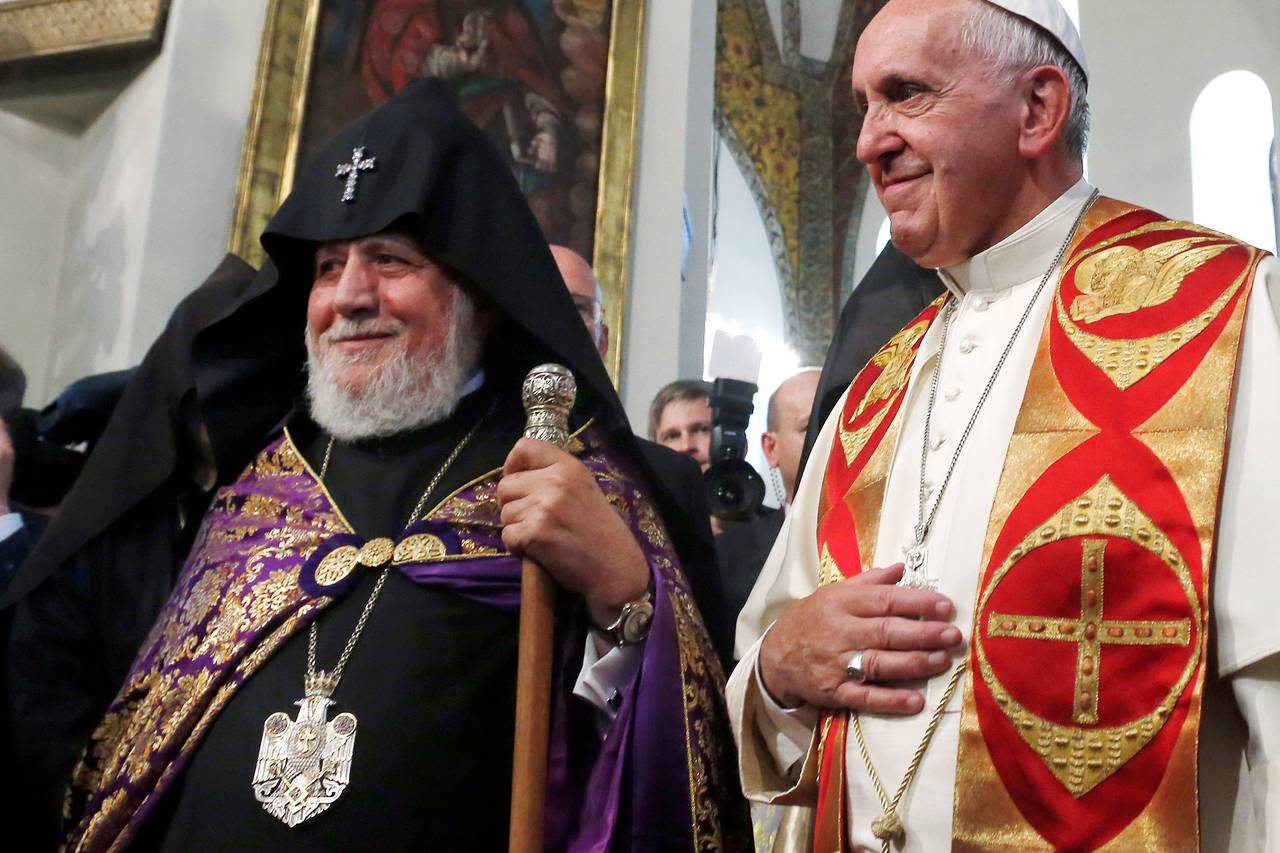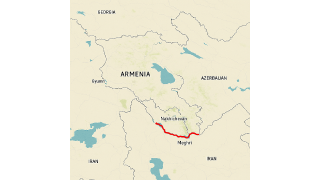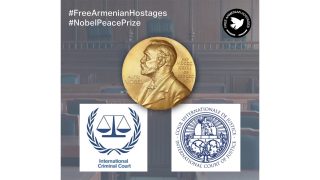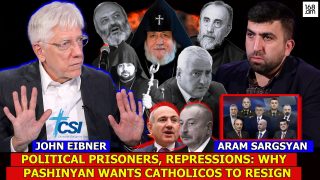
WSJ: Pope Francis Condemns Massacre of Armenians as ‘Genocide’ Again

The pope condemned as “genocide” the 1915 mass killings of Armenians by Turks, a move on the first day of a trip here that could strain relations between Turkey and the Vatican again.
Departing from his prepared remarks Friday in the presidential palace, Pope Francis condemned “that tragedy, that genocide” as “the first of a deplorable series of catastrophes of the past century.”
He lamented that the “great powers looked away” from the Armenian massacres and later atrocities “made possible by twisted racial, ideological or religious aims.”
The issue of whether the pope would echo his 2015 description of the killing of Armenians by Ottoman forces as “the first genocide of the 20th century” had hung over the three-day event. Turkish President Recep Tayyip Erdogan last year condemned the pope’s description and warned him “not to repeat this mistake.”
There wasn’t any immediate reaction from Ankara on Friday.
Back in 2001, St. John Paul II used the word during his visit to Armenia. But Pope Francis went further last year by calling the massacre one of “three massive and unprecedented tragedies” in the 20th century, along with the Holocaust and the 1932-33 made-man famine in Ukraine and other parts of the Soviet Union.
In his own speech Friday, Armenian President Serzh Sargsyan repeatedly used the word genocide. “We don’t look for culprits. We don’t spread accusations. We simply want things to be called by their names,” he said.
Pope Francis goes Saturday to nearby Tsitsernakaberd to visit Armenia’s genocide memorial.
The pope arrived Friday afternoon in Yerevan, the capital of Armenia, which he noted was the first country to adopt Christianity as a state religion. The downtown was decorated with Armenian and purple-and-yellow flags welcoming Pope Francis to “the first Christian nation.”
Armenia embodies the “holy sign of martyrdom, which has constantly accompanied the history of your people,” he said during a welcome ceremony.
Armenia is overwhelmingly Christian, although Roman Catholics are relatively few.
Armine Arutsunyan, who was waiting for the pope with her two children downtown, said she hoped Pope Francis would use the word genocide during his visit.
“I think that if he talks about that story, Turkey will feel it,” she said. “Let them feel that they shouldn’t have done it, let them feel that they hurt us.”
Tensions between Armenia and another neighbor—Azerbaijan—also loom over the visit. The two former Soviet republics have fought over the Nagorno-Karabakh region, an ethnic Armenian enclave within predominantly Muslim Azerbaijan that was overtaken by Armenia during a six-year war, which ended with a 1994 cease-fire.
A recent outbreak of fighting—the worst in decades—began when Azeri forces broke through Armenian lines in a bid to retake strategic heights. The two sides accuse each other of ongoing shelling.
The Pope’s visit “is important because we were the first state to accept Christianity,” said Anushavan Mikoyan, a 62-year-old retiree sitting with his wife in downturn Yerevan. “But also because today there are many wars in the world, including in our Karabakh. It might help people to live peacefully.”
The pope will visit Azerbaijan together with Georgia this fall. The Vatican is officially presenting the two trips as parts of a single trip to the Caucasus.
By Laura Mills























